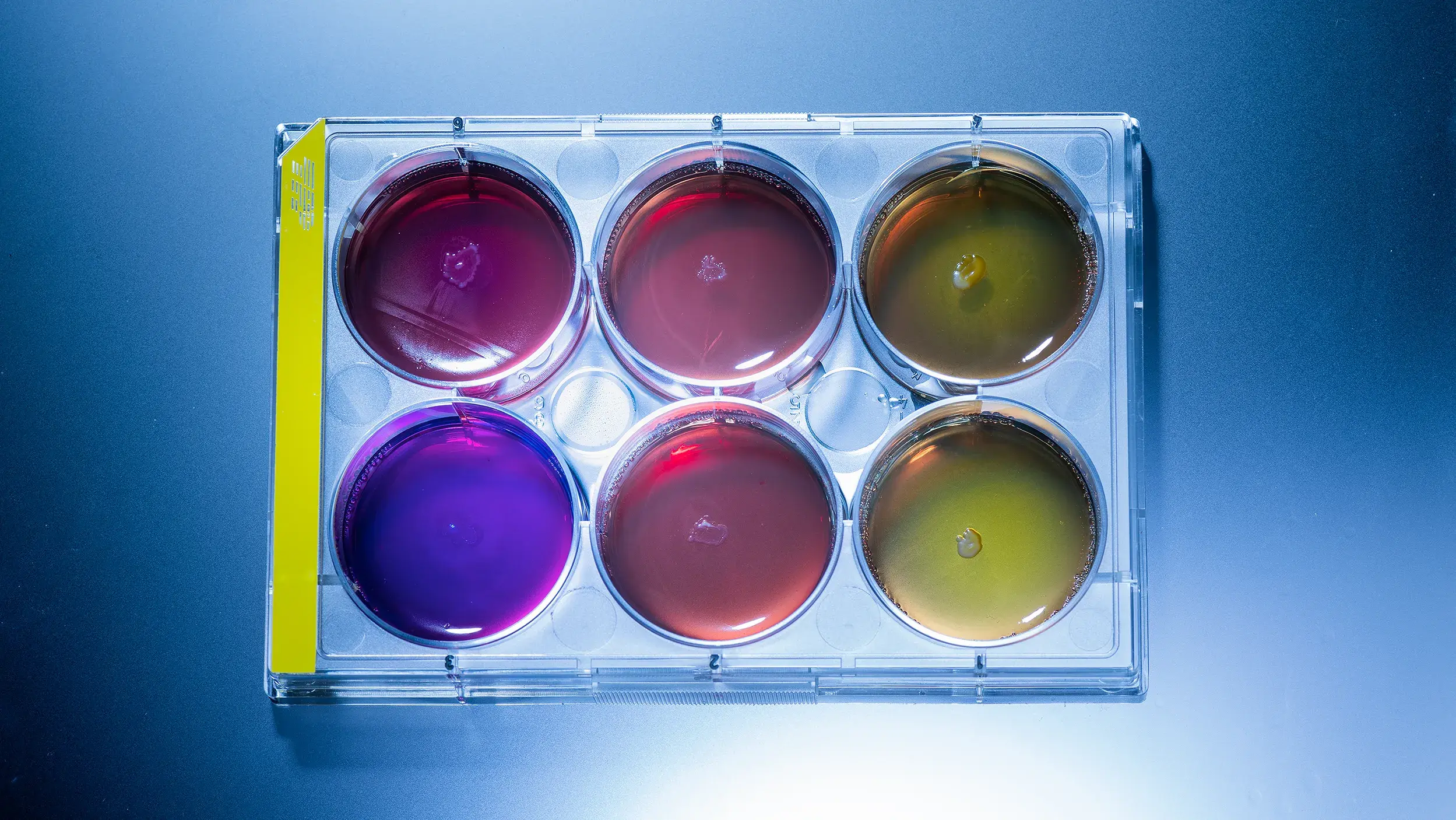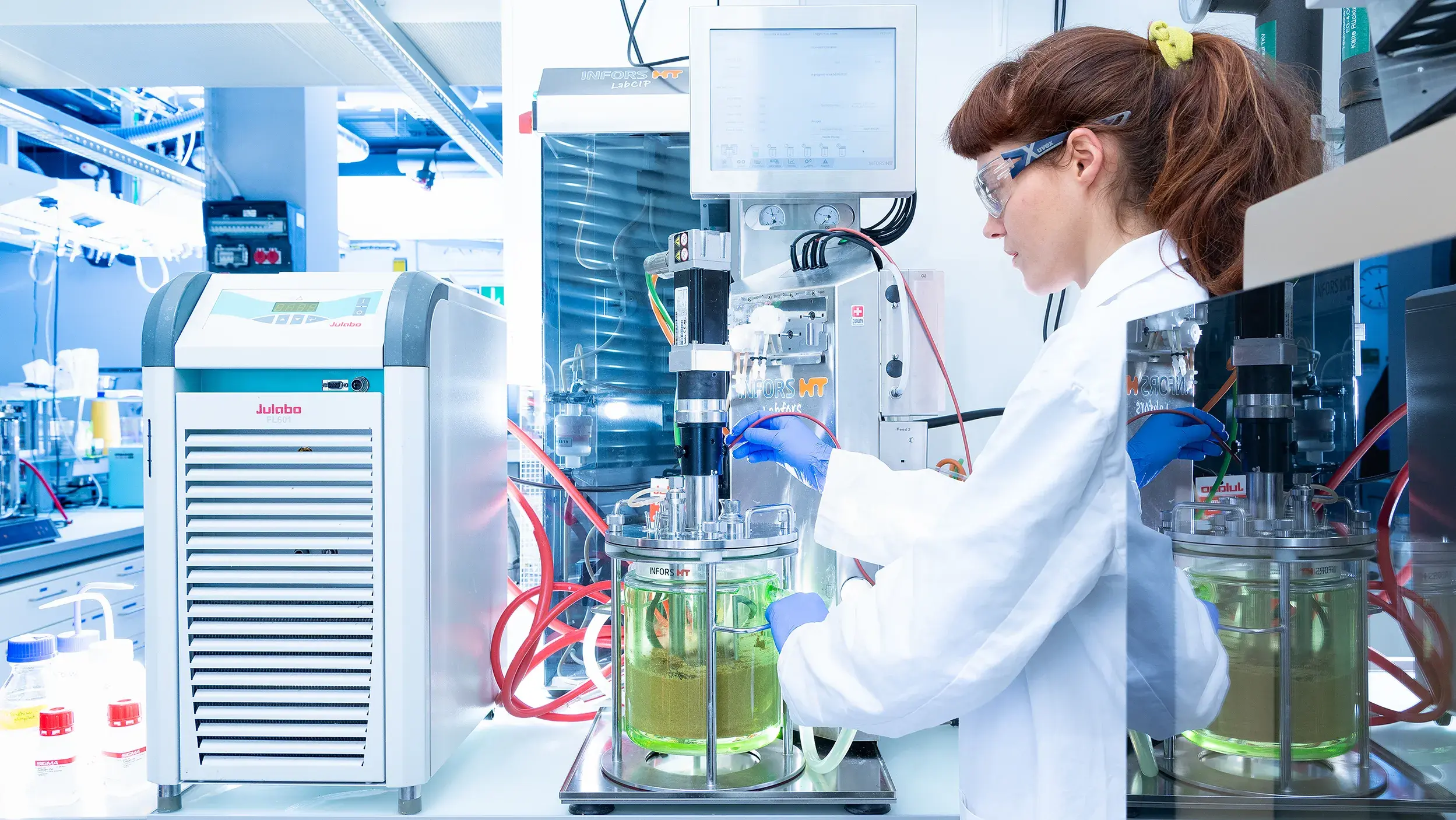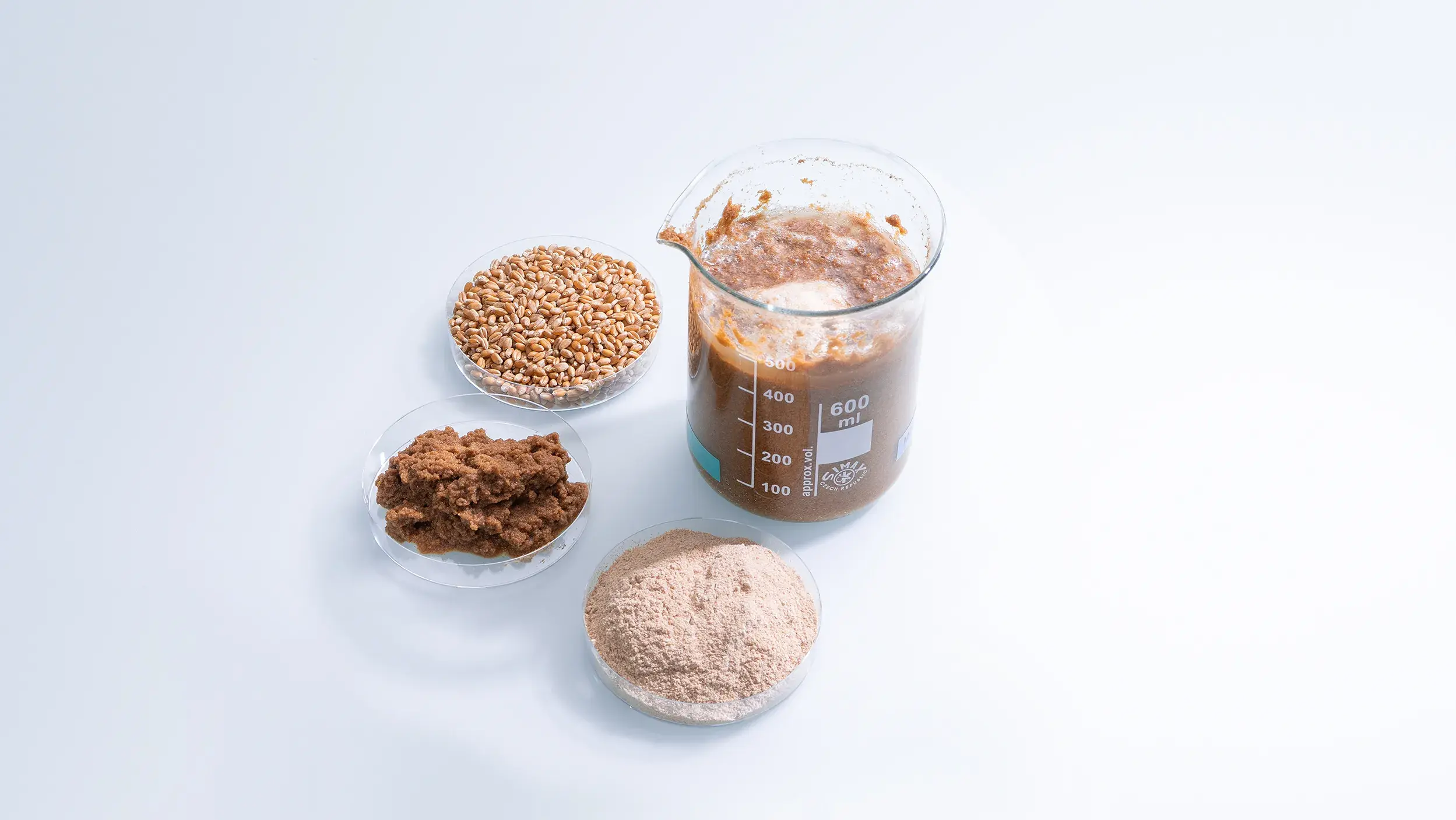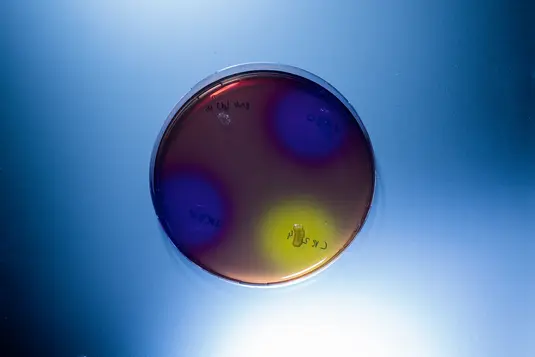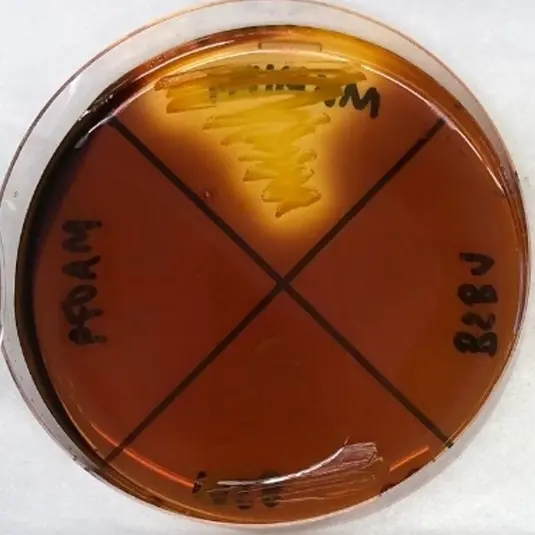Food Biotechnology Research Group
Tailored fermentation processes and functional microbial food cultures in a sustainable food production.
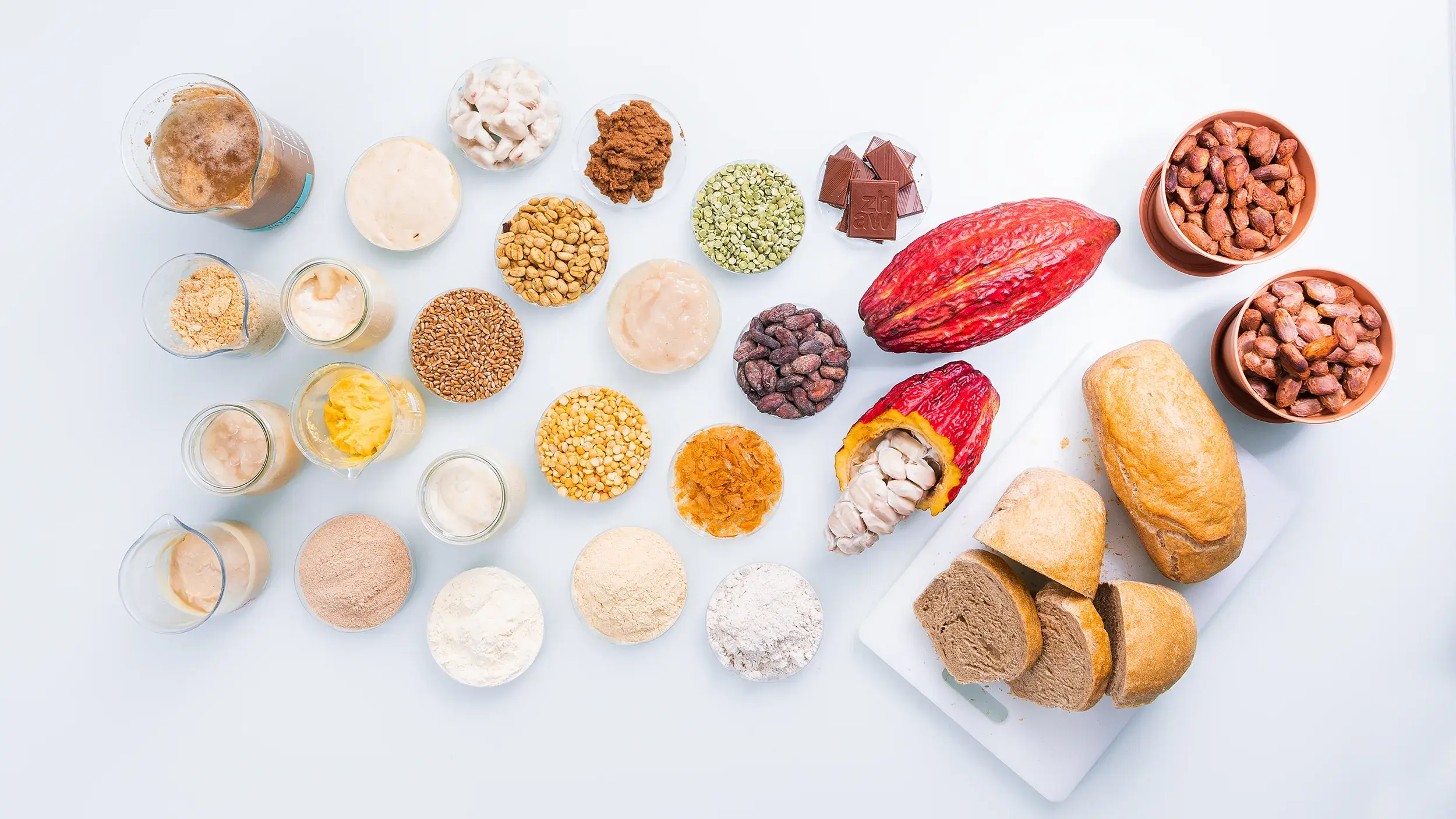
The Food Biotechnology research group deals primarily with desirable microorganisms in food, from the identification of suitable microbial strains to optimized fermentation processes and ultimately the application in food.
The overall goal of our research is sustainable food production using both functional microbial cultures and tailor-made fermentation processes. The focus is on improved food safety and quality in a clean label strategy. To achieve this, we combine basic research with applied research.
Our research strategy is based on three pillars: 1) the microbial formation of desired bioactive substances and the degradation of undesired substances in fermentation processes, 2) bio-valorisation of side streams from the agricultural and food sector in a regenerative up-cycling and 3) the production of biomass for future-oriented food.
In customized high-throughput screenings we investigate microbial strains with respect to functional metabolic activities and ultimately test interesting candidates in food with respect to the desired activity and the influence on the fermentation process and product quality. In addition to classical liquid submerged fermentations, we carry out high-viscosity and solid-phase fermentations.
The development of functional cultures includes safety assessments using modern molecular biology and analytical techniques. Our research is rounded off with fermentation processes in bioreactors for the production of active cultures.
We have a steadily growing collection of microbial strains, mostly isolated from plant-based food fermentations and environmental samples. The collection comprises more than 14,000 isolates, mainly lactic acid bacteria, but also acetic acid bacteria, propionic acid bacteria, yeasts and undesirable or pathogenic microorganisms such as molds or listeria as target organisms for antimicrobial screening and challenge tests. It is carried out in accordance with the Nagoya Protocol.
We conduct most of our research projects in cooperation with partners from industry and science.
Our Research Strategy- Science of Food Fermentation
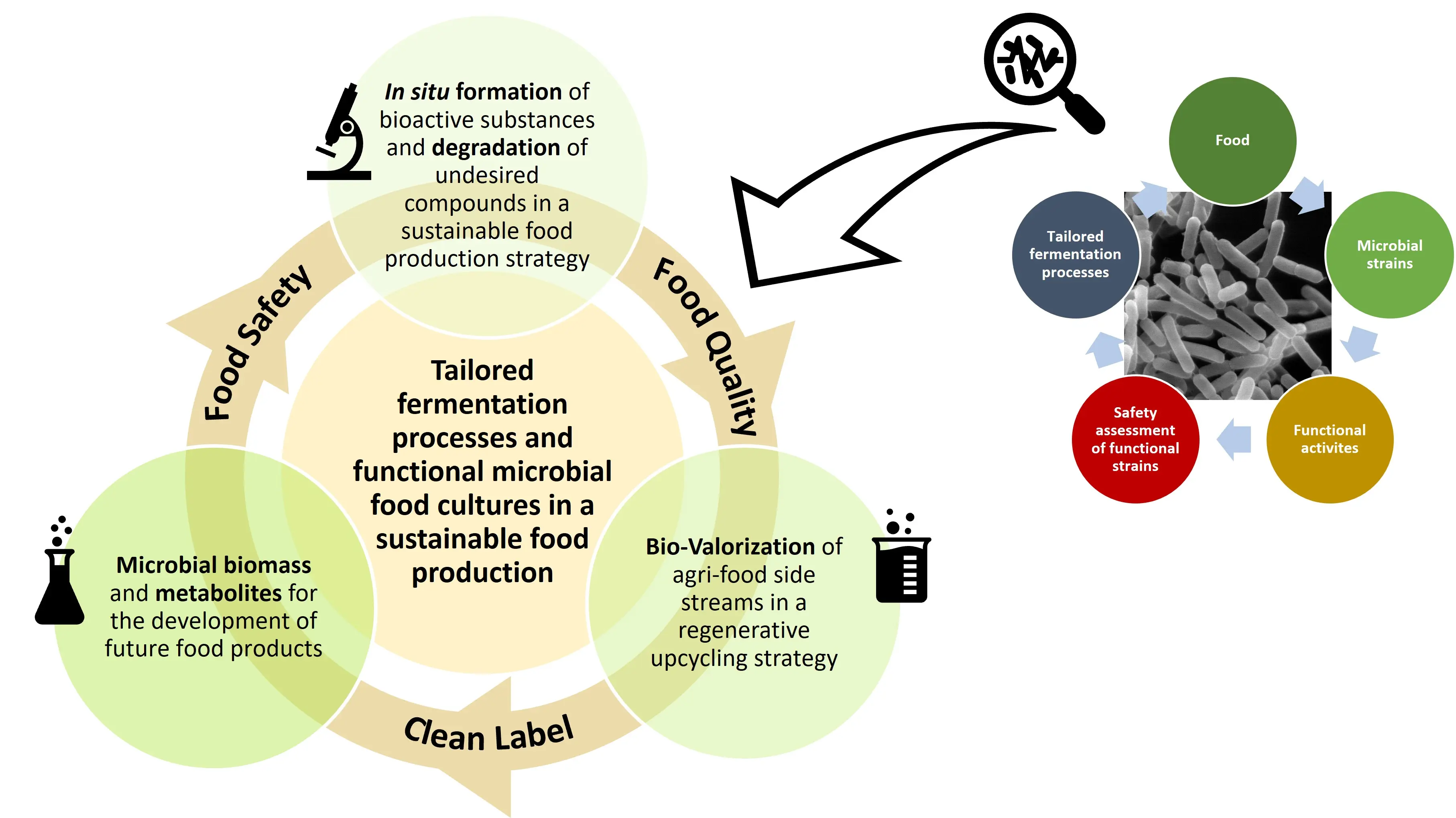
Publications
-
Romanens, Edwina; Freimüller Leischtfeld, Susette; Volland, Andrea; Stevens, Marc; Krähenmann, Ursina; Isele, Désirée; Fischer, Birgit; Meile, Leo; Miescher Schwenninger, Susanne,
2019.
International Journal of Food Microbiology.
290, pp. 262-272.
Available from: https://doi.org/10.1016/j.ijfoodmicro.2018.10.001
-
Romanens, Edwina; Näf, Rebecca; Lobmaier, Tobias; Pedan, Vasilisa; Freimüller Leischtfeld, Susette; Meile, Leo; Miescher Schwenninger, Susanne,
2018.
A lab-scale model system for cocoa bean fermentation.
Applied Microbiology and Biotechnology.
102(7), pp. 3349-3362.
Available from: https://doi.org/10.1007/s00253-018-8835-6
-
Miescher Schwenninger, Susanne; Freimüller Leischtfeld, Susette; Gantenbein-Demarchi, Corinne,
2016.
Letters in Applied Microbiology.
Available from: https://doi.org/10.1111/lam.12621
-
Romanens, Edwina; Näf, Rebecca; Lobmaier, Tobias; Meile, Leo; Miescher Schwenninger, Susanne,
2016.
A lab-scale model system for cocoa bean fermentation[poster].
In:
International Conference on Food Microbiology, Birmingham, United Kingdom, 8-10 August 2016.
-
Müller, Claudia; Streule, Stefanie; Brechbühler Peskova, Marie; Buchli, Jürg,
2016.
Gewinnung und Verwertung von Kakaopulpe in Honduras[poster].
In:
53. Jahreskonferenz der Deutschen Gesellschaft für Ernährung, Fulda, Deutschland, 2.-4. März 2016.
Bonn:
Deutsche Gesellschaft für Ernährung.
Further publications from the institute for food and beverage innovation
Projektzusammenarbeit
We offer various opportunities for project collaboration. Projects are carried out in the form of research projects, development projects, services or student projects, such as semester papers, Bachelor's theses, or Master's theses.
For project inquiries, please contact

